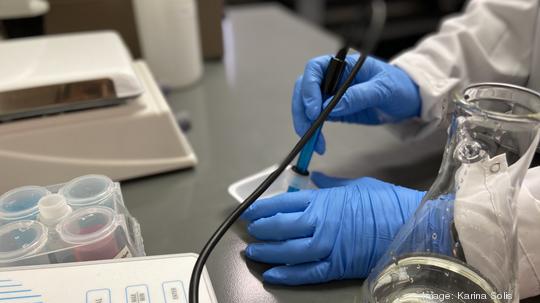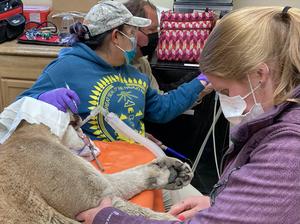
A Phoenix company developing medical diagnostics for neurodegenerative diseases has received a $2.4 million grant from the National Institute on Aging, part of the National Institutes of Health.
The Phase II Small Business Innovation Research grant is the second such award for CND Life Sciences, a startup founded in 2017 that produces the Syn-One Test that uses skin biopsies to find abnormal proteins to indicate conditions such as dementia with Lewy bodies, Alzheimer’s disease, REM sleep behavior disorder and Parkinson’s disease.
The company said the award will allow it to conduct a clinical study of 80 patients with neurologists and academic centers across the U.S. The researchers want to distinguish dementia with Lewy bodies from Alzheimer’s disease at the early stage of mild cognitive impairment.
“Millions of older adults experience mild cognitive impairment (MCI) and are at greater risk of developing a more serious form of dementia 5-10 years after the appearance of MCI symptoms,” said Todd Levine, MD, CND’s chief medical officer and principal investigator for the grant, in a statement. “Understanding the type of dementia that is developing early in the disease course is becoming increasingly important, as novel drug therapies and other treatment interventions are finally becoming a reality.”
Levine is one of three doctors who founded CND. The other two are professors at Harvard Medical School. The company operates a laboratory in Phoenix that is certified by the Clinical Laboratory Improvement Amendments, or CLIA, program.
CND’s clinical study is an important one for the dementias field, said Angela Taylor, interim executive director of the Lewy Body Dementia Association.
“Too often people with Lewy body dementia are misdiagnosed or diagnosed very late in the disease course and do not receive proper treatment tailored specifically to their diagnosis or have the information needed to make important care planning decisions,” Taylor said in a statement. “Having a more definitive diagnosis earlier in the journey of people with cognitive progressive cognitive impairment will be a major advantage in the future to treat dementias effectively.”
CND launched its Sen-One test in 2019, and the company says it has demonstrated over 95% sensitivity and specificity. The company collaborates on research with multiple biopharmaceutical companies.
A pool of 15 investors led by CND’s Chairman Peter Harris with participation from HonorHealth raised $2.4 million in seed funding for CND early in 2021.











